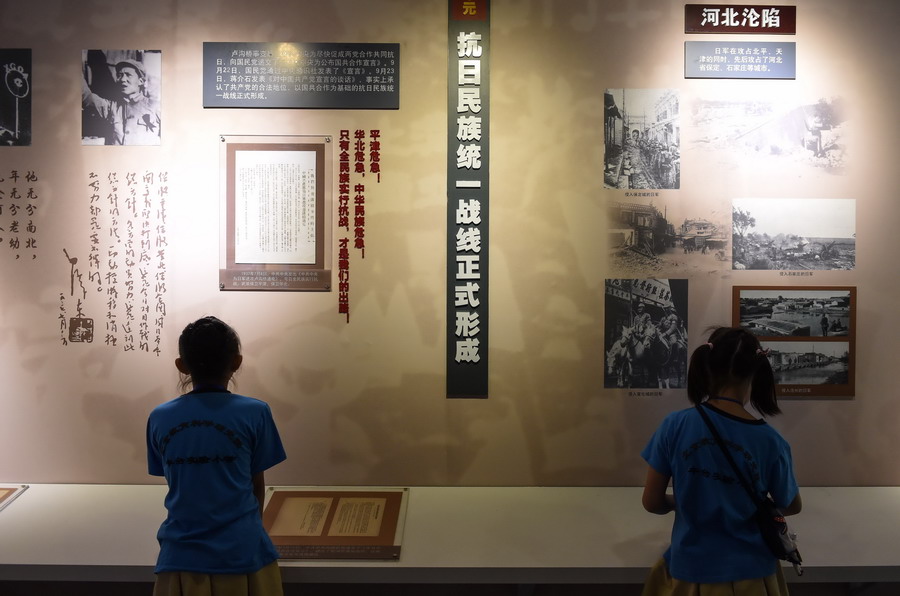Researchers adopt global take on civilizations

Children visit an exhibition displaying documents from the War of Resistance against Japanese Aggression at the Beijing Municipal Archives. Some scholars suggest that research of the War of Resistance against Japanese Aggression and World War II should be integrated to form a global historical view.
Research on global history primarily focuses on phenomena across different countries, regions, ethnicities and cultures, with scholars striving to understand history from macro and interactive perspectives.
Organized by the Research Center for Global History at Capital Normal University, the third Symposium on Global History was held in Beijing from June 20 to 21. Attending scholars engaged in in-depth discussion on how to study global history and construct a discourse system with Chinese characteristics.
Conducting research from a global historical perspective has significant implications in modern times, said Liu Xincheng, director of the Research Center for Global History, adding that it contributes to overturning Western-centered theories and elevating understanding.
Global history studies also provide possibilities for mutual learning among civilizations, Liu said. “The idea of people sharing a common destiny refers to seeking common interests and values among people and nations. Traditional studies emphasized dividing the world into smaller parts and distinguishing differences. Nowadays, scholars have cast their attention to the common character of civilizations from a global historical perspective,” Liu said.
As an emerging research vision and path, it has also influenced the development of maritime, ideological, environmental and economic history studies.
Xia Jiguo, executive deputy director of the Research Center for Global History, said that the research approaches of maritime history have changed a lot due to the development of global history studies.
Bao Maohong, a history professor at Peking University, discussed the environmental history of the Asia-Pacific region from the perspectives of regional and global histories. Research on regional and global histories should complement each other, and studying the environmental history of the Asia-Pacific region is conducive to deepening understanding of global history, Bao added.
In addition, conducting comprehensive research of Chinese history in a global context is one of the main characteristics of current studies. Xu Hong, a research fellow from the Institute of Archaeology at the Chinese Academy of Social Sciences, said Chinese civilization must be considered in the framework of Eurasia and the world when analyzing bronze casting techniques and the beginning of the Bronze Age.
“Over the past three decades, the focus of research of world history in China has transitioned from productivity to modernization and global history,” said Liu Beicheng, a professor from the Department of History at Tsinghua University.
Compared with other countries, global history studies in China started relatively late. Qu Lindong, a professor from Beijing Normal University, said that Chinese scholars should pay more attention to global history. “Grasping discourse power in the field mainly depends on the introduction of research topics with worldwide views or Chinese characteristics, including studies of drugs, civilization, the ‘One Belt, One Road’ initiative and international anti-piracy patrols,” Qu said.
“Chinese scholars should consciously adopt wider visions and extend research fields,” said Qian Chengdan, a history professor from Peking University, adding that it is necessary to integrate research of the War of Resistance against Japanese Aggression and World War II to form a global historical view.
Some scholars also brought up the idea of reflecting on theories and methods of global history studies, including whether the concept of “interaction” can cover economic and cultural communications worldwide.
Sun MIaoning is a reporter at the Chinese Social Sciences Today.
